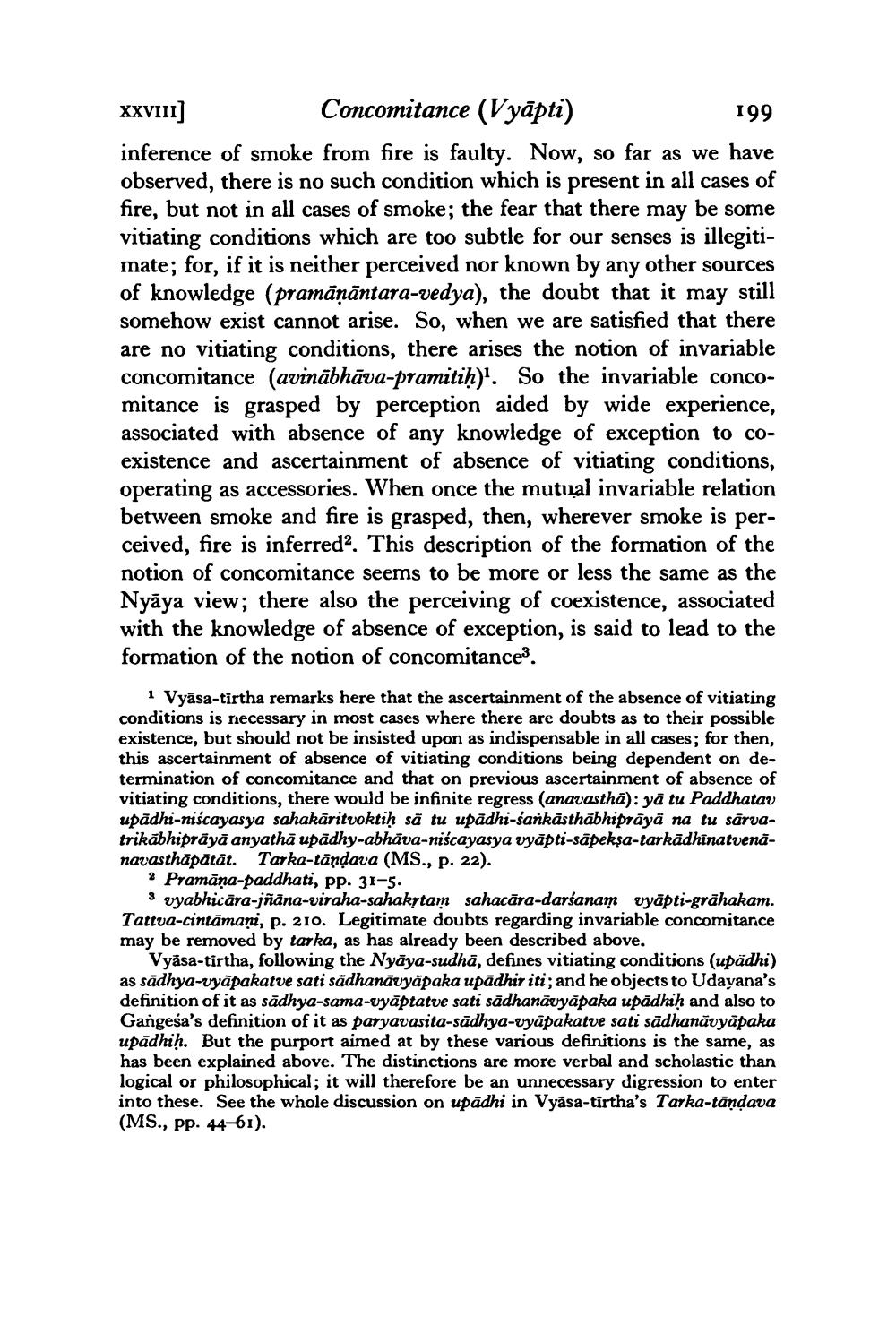________________
XXVIII] Concomitance (Vyāpti)
199 inference of smoke from fire is faulty. Now, so far as we have observed, there is no such condition which is present in all cases of fire, but not in all cases of smoke; the fear that there may be some vitiating conditions which are too subtle for our senses is illegitimate; for, if it is neither perceived nor known by any other sources of knowledge (pramāṇāntara-vedya), the doubt that it may still somehow exist cannot arise. So, when we are satisfied that there are no vitiating conditions, there arises the notion of invariable concomitance (avinābhāva-pramitiḥ)". So the invariable concomitance is grasped by perception aided by wide experience, associated with absence of any knowledge of exception to coexistence and ascertainment of absence of vitiating conditions, operating as accessories. When once the mutual invariable relation between smoke and fire is grasped, then, wherever smoke is perceived, fire is inferred. This description of the formation of the notion of concomitance seems to be more or less the same as the Nyāya view; there also the perceiving of coexistence, associated with the knowledge of absence of exception, is said to lead to the formation of the notion of concomitance.
1 Vyāsa-tirtha remarks here that the ascertainment of the absence of vitiating conditions is necessary in most cases where there are doubts as to their possible existence, but should not be insisted upon as indispensable in all cases; for then, this ascertainment of absence of vitiating conditions being dependent on determination of concomitance and that on previous ascertainment of absence of vitiating conditions, there would be infinite regress (anavastha): vā tu Paddhatav upādhi-niscayasya sahakaritvoktiḥ sā tu upādhi-sankāsthābhiprāyā na tu sārvatrikābhiprāyā anyathā upādhy-abhāva-niscayasya vyapti-sāpeksa-tarkādhinatvenānavasthāpātāt. Tarka-tandava (MS., p. 22).
Pramāņa-paddhati, pp. 31-5. s vyabhicāra-jñāna-viraha-sahakytam sahacara-darśanam vyāpti-grāhakam. Tattva-cintāmani, p. 210. Legitimate doubts regarding invariable concomitance may be removed by tarka, as has already been described above.
Vyāsa-tirtha, following the Nyāya-sudha, defines vitiating conditions (upädhi) as sādhya-vyāpakatve sati sādhanavyāpaka upādhir iti; and he objects to Udayana's definition of it as sādhya-sama-vyāptatve sati sādhanāvyāpaka upādhih and also to Gangeśa's definition of it as paryavasita-sādhya-vyāpakatve sati sādhanāvyāpaka upādhih. But the purport aimed at by these various definitions is the same, as has been explained above. The distinctions are more verbal and scholastic than logical or philosophical; it will therefore be an unnecessary digression to enter into these. See the whole discussion on upādhi in Vyāsa-tirtha's Tarka-tandava (MS., pp. 44-61).




